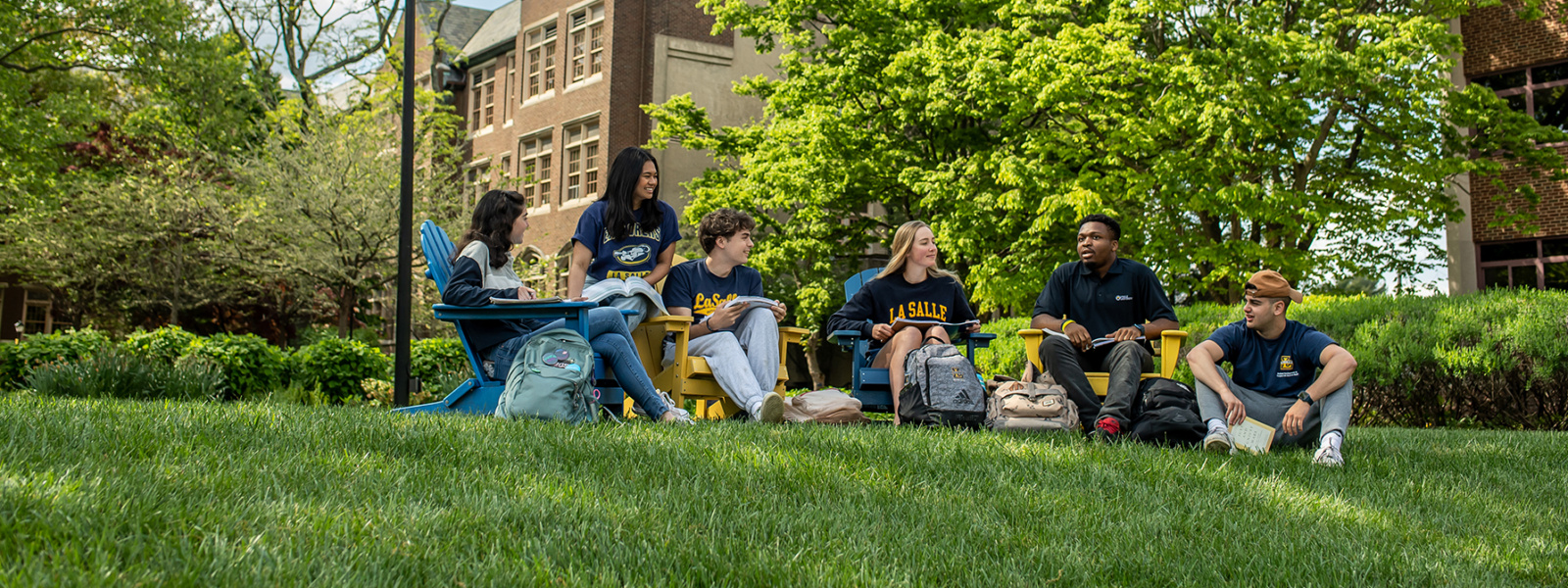La Salle University

What You’ll learn
Our Secondary education major is a dual major program with secondary education and a chosen academic content discipline. The Education Department offers an innovative and challenging Secondary Education Program that leads to recommendation for an Instructional I Certificate in Biology, Chemistry, Communications, English, Foreign Languages including Spanish, French, German, Italian, and Latin, General Science, Earth and Space Science, Mathematics, or History.
Why Study Secondary Education at La Salle?
This major prepares students to teach in regular education classrooms. Given that schools need highly qualified educators who can work with students in regular education, inclusion, and special education classroom, this major makes graduates marketable to schools both locally and globally.
Highlighted Courses
EDC 224 – Adolescent Development
Using an educational technology framework, this course explores the unique universe of the adolescent. Issues under discussion will include cognitive, moral, language, sexual, physical, and social development. Students use an educational technology framework to examine the adolescent in a variety of contexts, including family, peers, school, work, and leisure. This course is developed for secondary education majors only and is open to students in other majors to study adolescent development. Field experience (two hours each week) is required in conjunction with this course.
EDC 304 – Reading for Secondary Educators
This course provides undergraduate secondary education majors with the opportunity to understand reading as a strategic interactive process that affects the learner’s efforts in all academic areas. Students will explore currently held views of the reading process, instructional techniques, and assessment concerns related to secondary education. Class sessions employ a variety of formats, including lecture, demonstration, discussion, and hands-on experiences. Course projects provide practical application of the theoretical, instructional, and diagnostic issues presented. Field experience (two hours each week) is required in conjunction with this course.
EDC 470 – Special Methods of Teaching (The Professional Semester)
This course provides the secondary education major with full-time student-teaching experience in a grade 7-12 classroom. Under the direction of a certified cooperating teacher and a university supervisor, the student teaches for 12 weeks on a five-day-a-week, full-day schedule. The student-teaching experience is supplemented by tutorials/seminars on selected professional issues and practice. The seminars are held for two weeks at the start of the semester on a five-day-a-week, full-day schedule, and evenings during the semester. To be eligible for student teaching, the student is required to make a formal application for Stage II candidacy in the Secondary Education (EDC) program.
Meet the Faculty
Career Opportunities
A degree in education offers more career options than teaching. A background in education can prepare you to take a leadership role in many other education-related jobs. Consider being a:
- Teacher
- Administrator
- School Superintendent
- Secretary of Education
- Curriculum Specialist
- Instructional Coach or Leader
- Outreach Specialist
- Non-profit Program Coordinator
- Student Support Specialist
- Community Liaison